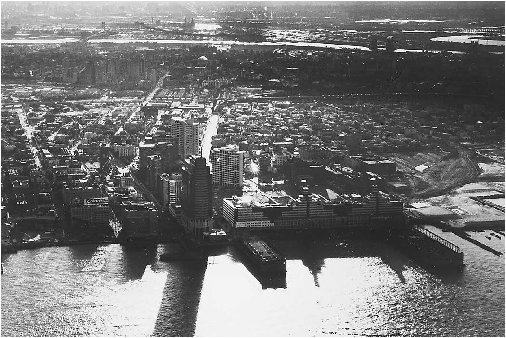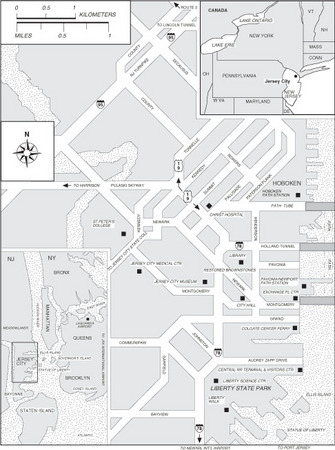Jersey City
Jersey City: Geography and Climate
Jersey City: History
Jersey City: Population Profile
Jersey City: Municipal Government
Jersey City: Economy
Jersey City: Education and Research
Jersey City: Health Care
Jersey City: Recreation
Jersey City: Convention Facilities
Jersey City: Transportation
Jersey City: Communications

The City in Brief
Founded: 1630, (incorporated, 1820)
Head Official: Mayor Jerramiah Healy (D) (since 2005)
City Population
1980: 223,532
1990: 228,537
2000: 240,055
2003 estimate: 239,097
Percent change, 1990–2000: 4.8%
U.S. rank in 1980: 61st
U.S. rank in 1990: 67th (State rank: 2nd)
U.S. rank in 2000: 73rd (State rank: 2nd)
Metropolitan Area Population
1990: 553,099
2000: 608,975
Percent change, 1990–2000: 9.2%
U.S. rank in 1980: 1st (CMSA)
U.S. rank in 1990: 1st (CMSA)
U.S. rank in 2000: 1st (CMSA)
Area: 14.9 square miles (2000)
Elevation: 20 feet above sea level
Average Annual Temperature: 52.6° F
Average Annual Precipitation: 47.4 inches of rain; 27.8 inches of snow
Major Economic Sectors: Trade, services, government, manufacturing
Unemployment rate: 5.4% (February 2005)
Per Capita Income: $19,410 (1999)
2002 FBI Crime Index Total: 12,182
Major Colleges and Universities: Jersey City State College, St. Peter's College, Hudson County Community College
Daily Newspaper: Jersey Journal
